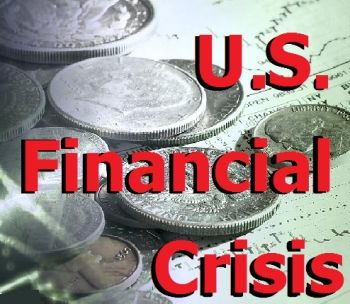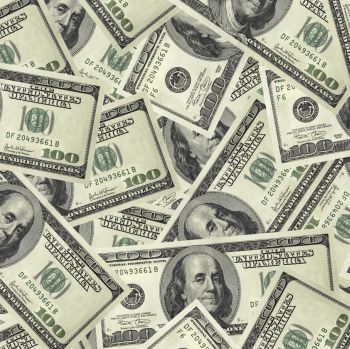
Publisher:
Bonnie King
CONTACT:
Newsroom@Salem-news.com
Advertising:
Adsales@Salem-news.com

~Truth~
~Justice~
~Peace~
TJP
Apr-26-2009 00:31

 TweetFollow @OregonNews
TweetFollow @OregonNews
Op Ed: IMF Sees Deepening
Worldwide Depression,
Multiplies Keynes-Impacts
By Henry Clay Ruark for Salem-News.com
Fundamental Stimulus Demanded from All Nations.
 Courtesy: University of Michigan |
(SALEM, Ore.) - When relentlessly changing whole-world economic conditions rapidly undermine unstable demand-levels in every economy, SOMEthing MUST be DONE SomeHOW.
In the Great Depression, with even worse worldwide conditions now again shadowing the entire complex global economy as the International Monetary Fund reported today, it took the Great War to create overwhelming output levels --created primarily in the United States-- to restore “normality”.
It was the U.S. as “the arsenal of democracy”-- to replace that missing worldwide demand/situation-- that led the worldwide economic recovery following World War II. The Marshall Plan following War II was designed precisely to make possible worldwide return to the production of demand-levels, assuring recovery and remediation worldwide.
Lauded lavishly as “the greatest action ever undertaken by one nation to aid other nations”, that massive, manipulative multi-billion-cost contribution was controversial then. It remains so now, in retrospect, for what the same funds could have accomplished at home --under more probing examination now than for decades previously.
The consequences have been the crux of economic debate and dialog ever since, pitting classic economists vs modern --hinging primarily on unavoidable aspects of wildly-differing world conditions and controls --or lack of them.

Does America have a destiny, as well as once-felt strong responsibility, to lead the world in a renewed return to well-respected, previously-proven actions now demanded?
Or should we stay-at-home, hard-pressed to preserve, protect and provide for our own hard-pressed citizens? The historic record is seen by most economists and students as overwhelming, impossible-to-ignore proof of the Keynesian view: Nations must spend whatever it may take to replace foundation-demand, lost for whatever reasons.
The resulting heavy burden of borrowing-costs is a small price to pay for the only possible return to health and safety in each economy thus preserved. (Paraphrased: See “Worldly Philosophers” for full details.)
The United States --led by FDR’s only-partial application of Keynes-theory in the late phases of his New Deal-- was the first nation to put into practice what Keynes developed so strongly.
The British genius presented his findings to FDR only in 1937, with Congressional impediments and other political-play continuing to prevent his deep-enough funding for fully-proven applications vs depression impacts starting in 1929.
Some of you may recall that notorious day of disastrous Wall Street plunge still plaguing WS history. Its monstrous manipulative impacts on every phase of economic and fiscal/financial management have been paramount for all government, business and social managements, and every policy and program, ever since.
(Just ask YOUR broker re that painful reality!) FDR’s prescient understanding, approval and strong application, even if late, led to many of the New Deal successful programs to put people to work-with-pay. The WPA employed EIGHT MILLION in made-work jobs with paid-for/labor, with other programs making like contributions replacing “normal” business activities.
FDR’s emphasis on strong funding leading to further employment --via large-project and basic-foundation facilities of all types, kinds and levels-- continued in full depth throughout the rest of the U.S. Depression years.

Today those efforts are seen by many economists as the major steps eventually breaking the Depression in our nation: Beginning just before the World War II resumption of huge production bled uniquely-huge dollars back into the nation’s economy.
That is now historically seen as furnishing full and furious policy-and-action to return the U.S. --and the world, through our economic leadership-- to renewed and long-continued productivity and prosperity. That Great Depression pattern set by the Keynes protocol is now seen by the IMF and a consensus of skilled professional economists, worldwide, as basically mirroring the situation we now face internationally.
This time, learning from the only unique testing situation ever available previously, the elite-in-power are moving massively --we can hope also imaginatively-- to extend, improve, and perfect the protocols provided by Keynes, under remorseless examination ever since.
Given the recognized realities of major difference definitely known for much more complex, compelling and demanding world conditions, the IMF, World Bank, and every other possible organization and group are concentrating as never before, you can be sure.
Allowance must be made for the emergence of many more still-developing nations moving towards their share of the world economy; and for the devouring devastation of deregulation, privatization and globalization, never known for consequences by classical economists.
The impacts of major changes in human response to much different life-conditions, provided by cognitive and psychological science,also now force change in economic, social, cultural and even religious understandings of why populations respond as they well may.
But it is that very overall lack of unity and competence via worldwide organizations, ready and able to act, which makes extremely difficult --some say impossible-- to initiate, shape, and then produce what clearly must be done: Cooperative action by all to completely consolidate, surround, isolate and remove the malign causes of the continuing economic cycles --and overwhelmingly destructive bubbles-- which, at east twice-now, have forced the full financial/fiscal world systems into chaos and confusion.
The real danger --seen now far more clearly by far more millions everywhere-- is the desperate damages done to not only economic but social, cultural and governmental functions, wracked and sometimes ruined. In the wake of such wreckage comes the never more potent danger of despairing millions turning to political upset.
These millions are deeply driven by their personal passionate demand for what they consider their “right to lifestyle in the modern world” of the 21st Century. Most potently --and we can hope persuasively-- that single factor may well force, finally, the kind, level, quality and cooperative function most rational, reasonable American feel we must SOON HAVE.
That’s fast becoming the most-evident feature of life in every nation in these ending years of the 21st Century’s opening decade.--if we are not to face precipitous, overwhelmingly potent, disaster at all levels from economic on through social-and-cultural.
Again, it simply boils down to what we CHOOSE to DO and how we choose those who MUST DO IT -- that SOMEthing which may just save our world as we have known it by remaking it in ways we have known for a very long time: Ever since democracy was first conceived.
Reader’s Note:
See the Associated Press report for IMF summary of the current economic crisis: “Global recession deepest since Great Depression, IMF declares.” at registerguard.com. More than 40 sources, in standard reference books, current magazines, writer’s working files, and via the Internet, were utilized for “the facts converted into knowledge, shaping this ‘informed opinion’ for your convenience”. Full documentation available as LMA report, via complete ID and phone to Editor.
 Henry Clay Ruark is one of, if not the most experienced, working reporter in the state of Oregon, and possibly the entire Northwest. Hank has been at it since the 1930's, working as a newspaper staff writer, reporter and photographer for organizations on the east coast like the Bangor Maine Daily News.
Henry Clay Ruark is one of, if not the most experienced, working reporter in the state of Oregon, and possibly the entire Northwest. Hank has been at it since the 1930's, working as a newspaper staff writer, reporter and photographer for organizations on the east coast like the Bangor Maine Daily News.Today he writes Op-Ed's for Salem-News.com with words that deliver his message with much consideration for the youngest, underprivileged and otherwise unrepresented people.
Articles for April 25, 2009 | Articles for April 26, 2009 | Articles for April 27, 2009

googlec507860f6901db00.html
Salem-News.com:



Terms of Service | Privacy Policy
All comments and messages are approved by people and self promotional links or unacceptable comments are denied.
May 3, 2009 3:23 pm (Pacific time)
What recovery? There will be no recovery!
Quinn April 30, 2009 6:55 am (Pacific time)
This latest budget to pass will be either a make or break for the current administration. This is going into unchartered financial territory based on an economic theory that is outmoded for our current economy , and it's ramifications will impact us, either positive or negative, for many years down the line. In my opinion. I know if I maxed out all my credit, then found ways to borrow even more, then say my personal income stream was reduced, then I would likely lose all my assets. Now if I could print money, well I could maintain for a while, but then that money would be worth less and less as time went by. So should I print more? Eventually there would not be enough printed money to cover expenses because of hyper-inflation. In my opinion. Of course I forgot to include other expenses like healthcare and education costs.
Henry Ruark April 29, 2009 6:09 pm (Pacific time)
www.wpost.com News Alert 6:01 p.m. ET April 29, 2009 Senate Passes $3.5 Trillion Budget Plan Following House vote, Senate approves $3.5 trillion budget outline that lays the groundwork for President Obama's ambitious initiatives on health care and education. The major legislative victory for Obama comes on the president's 100th day in office. ------------------ So Senate study and probing examination have now assessed and approved the President's Keynesian approach and huge effort for economic stimulus.
Henry Ruark April 29, 2009 7:46 am (Pacific time)
To all: Here's "see with own eyes" from national source showing full IMF support --up to ONE TRILLION dollars !--for the ongoing Keynesian-stimulus approach. Finance Chiefs Back a Bolder IMF, Bigger Role for Emerging Nations By Anthony Faiola Washington Post Staff Writer Sunday, April 26, 2009 Global financial chiefs agreed yesterday to reshape the International Monetary Fund, moving to broaden its mission and accelerate plans to give developing giants including China, Brazil and India more say within the institution. The IMF, which in recent years had become largely an advisory body to nations in crisis, will now be charged with aggressive monitoring of the global economy. Underscoring that role, Treasury Secretary Timothy F. Geithner said yesterday that Washington had consented to a rigorous IMF review of the U.S. financial system for the first time since the fund was created at the end of World War II. The International Monetary and Financial Committee -- the IMF's policy-setting body made up of financial ministers and central bankers from a host of nations, including the United States -- additionally endorsed new, easier terms for IMF lending to the fast-growing number of nations buckling under the pressure of the global crisis. The agreement was reached at the annual spring meeting in Washington of the IMF and its sister organization, the World Bank. It amounted to a broad endorsement of a shift in thinking already underway at the fund, which was outlined by world leaders at an economic summit in London this month. As the financial crisis has spread in recent months, the IMF has adopted a more pragmatic approach toward lending, moving away from decades of harsh terms. ====================== If you wish to disagree, it will surely have to be with solid world organization and the consensus of the best well-tested world-class economists, advising them. The amount is more than ten times what they have ever had to work with, since BWoods start of Keynesian-way after World War II, noted for the historical fact plan has always been far underfunded. IF action had been possible as current crisis developed, rapid response may have cut down on full impacts, if not prevented them completely.
Scott April 28, 2009 2:46 pm (Pacific time)
Quinlan, thanks for the input.
Henry Ruark April 27, 2009 11:21 am (Pacific time)
Quinlan: For details on past ways out of Depression, some via FDR's unique insights, some via Keynesian inputs rapidly applied even if late ('37) see any of several FDR biogs., one by Goodwin best, new one by Jean Edward Smith repeats and verifies same historic facts. Many other more recent ones also available for anyone seeking facts from nonpartisan sources. Sir,you are misinformed and misled by noise/machine static generated for 40 years for precisely distorting purpose, per unchallengeable national sources and own statement when machine first set up. Re Congressional working pattern,how-change except by CHOICE and ACTION ? Only real meds for democracy failings is MORE democracy, TRULY applied by VOTE, which we STILL have. We can "see what's going on" anytime, if we will but look, and THEN cogitate. Apathy has long been our most damaging attribute nationally, with citizens avoiding very clear Constitutional/Bill of Rights responsibilities. Choice of which road we take THEN is up to US --but we better look far down each one open to us FIRST since this past-one, for 40 years, to which you SEEM TO wish to return, led us only to this SWAMP !!
Quinlan April 27, 2009 10:31 am (Pacific time)
Having a full and open debate by congress will provide the public with the transparency we need to explore the different pespectives/viewpoints on how to best address the current economic downturn. There are completely opposite economic theories on how to deal with the economy by highly degreed economists. To have a public airing of these viewpoints will allow the public to see what's going on with our tax money, and maybe make congress more deliberate in their decision-making process if they know we are watching, rather than passing bills they don't even bother to read. One can look to California as a state with a massive government that has a huge tax and spend philosophy which has decimated their economy. They are on the verge of going bankrupt. Why copy a failed system such as California on a national level? What past approaches have helped us out of past recessions? There is not one example where massive government spending has worked that I know of. Does someone know where that has worked before, especially considering the mandatory government spending we have?
Henry Ruark April 27, 2009 9:02 am (Pacific time)
To all: For comprehensive analysis of current fiscal/financial crisis in U.S. and affecting the whole world, see: www,prospect.org. "Five Ways of Looking at Risk" "See also" probing review of new books re Keynesian and Classic economics, by Paul Starr, same issue, titled: "A Stalled Counterevolution", referring to Classic approach now in disastrous disarray. WHO else to rely-on for fact othen than most authoritative authors one can find ?? Both of these add to my 40 source-note, too... Anyone else pursuing fact to that extent ? If so, please report here for all to learn.
Henry Ruark April 27, 2009 8:11 am (Pacific time)
Friend Q.: Yrs repeats ruthlessly past myths and dogmas found wanting in Depression days and ever since. I note you show NOT ONE source for what is completely personal interpretation and undocumented observation. Your points echo propaganda sold to millions for thirty years via still-operating GOP Noise Machine, well documented now. See any of more than a dozen best-seller books by past perpetrtors within Machine.OR check complete current issue of Amercan Perspective for a full (seven articles) discussion of risk, fiscal and financial management, and why world is so different now that change is demanded internationally, and is surely already occurring. ID self with phone to Editor for dialog to set out facts for your consideration and check, from LMA report far too long here. OR check past Op Eds, many reliable national sources, OR even IMF reports. Without some or all of that, you remain working uninformed or misinformed. How can you tell without checking sources offered ?? One here offered notes 20 yrs.old from Econ101 then. Yrs that old, too ?? Is that WHY not-cited NOW ??
Quinlan April 26, 2009 7:23 am (Pacific time)
When that brilliant economist Keynes presented his economic theories to different governments long ago, the American government's portion of the economy was 13%, now it has nearly doubled to 24%. In terms of government spending back then it was 97% discretionary, it is now 78% MANDATORY. Subsequently Keynes economic model does not even come close to applying, unless of course one wants the government to have control of the economy. This has neve worked, in fact it shows a past pattern of reducing productivity and diminishing rationing. The Founding Fathers knew that when the government got so big and assumed more and more control, and most importantly did not listen (nor fear) it's citizens you would soon have a dictaitorship. When the government is small and responds to it's citizens you have freedom, and it is that freedom that made America. Please be appraised that there is at least one past model that was used to pull us out of a recession and it is not being used. Current financial wizards have no experience nor past economic model for guidance. It is a crapshoot. Look at the states that are crashing and notice their policies. Compare them to states that are better off. It may not show what to do on a national or global level, but that comparison sure shows what NOT to do. Full and open debate in congress is absolutely essential, for anything less will diminish our chances of recovery.
[Return to Top]©2025 Salem-News.com. All opinions expressed in this article are those of the author and do not necessarily reflect those of Salem-News.com.